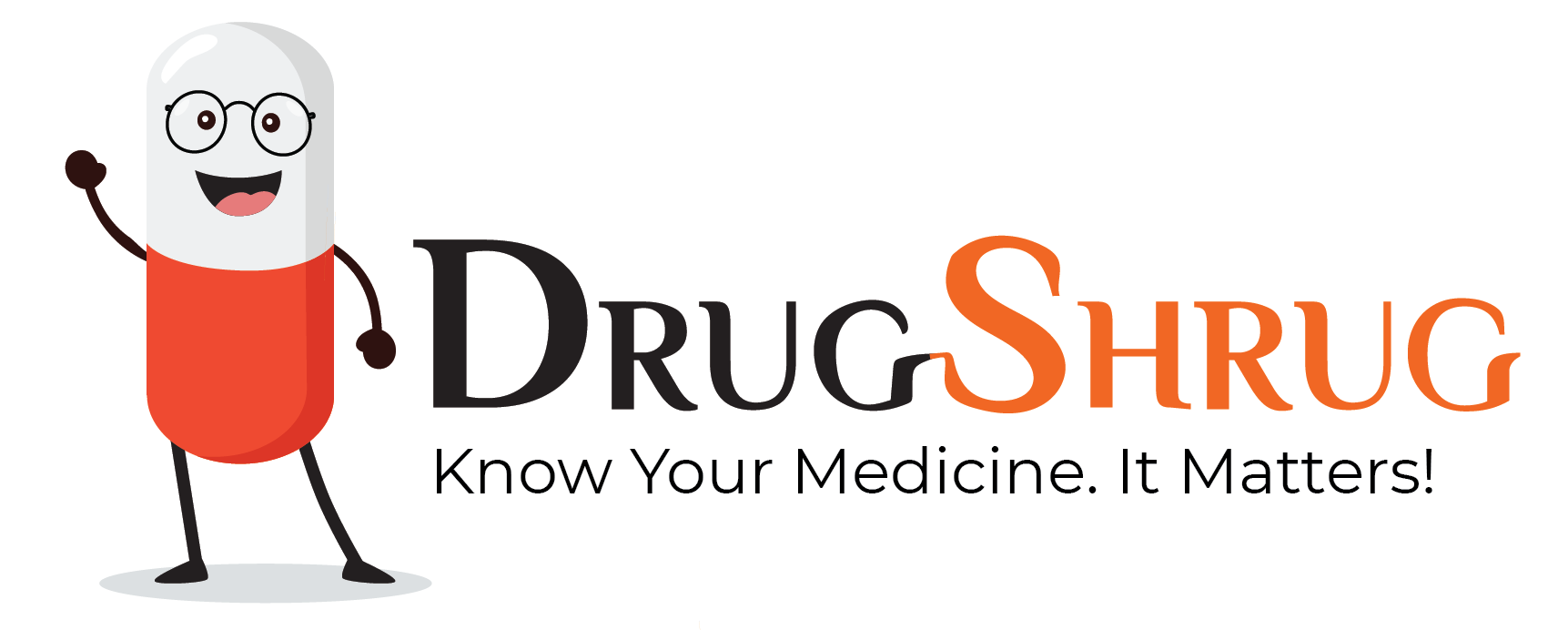What is Sacrosidase?
Sacrosidase is a yeast-based enzyme that substitutes an enzyme known as sucrase which is normally formed in the body. This enzyme enables the body breakdown and manages certain sugars during digestion mechanism.
The lack of natural sucrase in the body can allow the sugar to commune into intestines, where it can relate with bacteria. It further renders symptoms like bloating, gas, stomach ache, and watery diarrhoea. This medicine is recommended to treat sucrase deficit in people with congenital sucrase-somaltase deficiency (CSID).
However, note that CSID is a genetic enzyme deficiency condition and sacrosidase will not treat this condition. Avoid the medication to cure any issue not yet surveyed by your doctor. It is not meant for rectifying general indigestion or stomach ailments triggered by other health conditions. It may also be used for purposes not mentioned here in this precise medication directory.
What are the common conditions in which Sacrosidase prescribed?
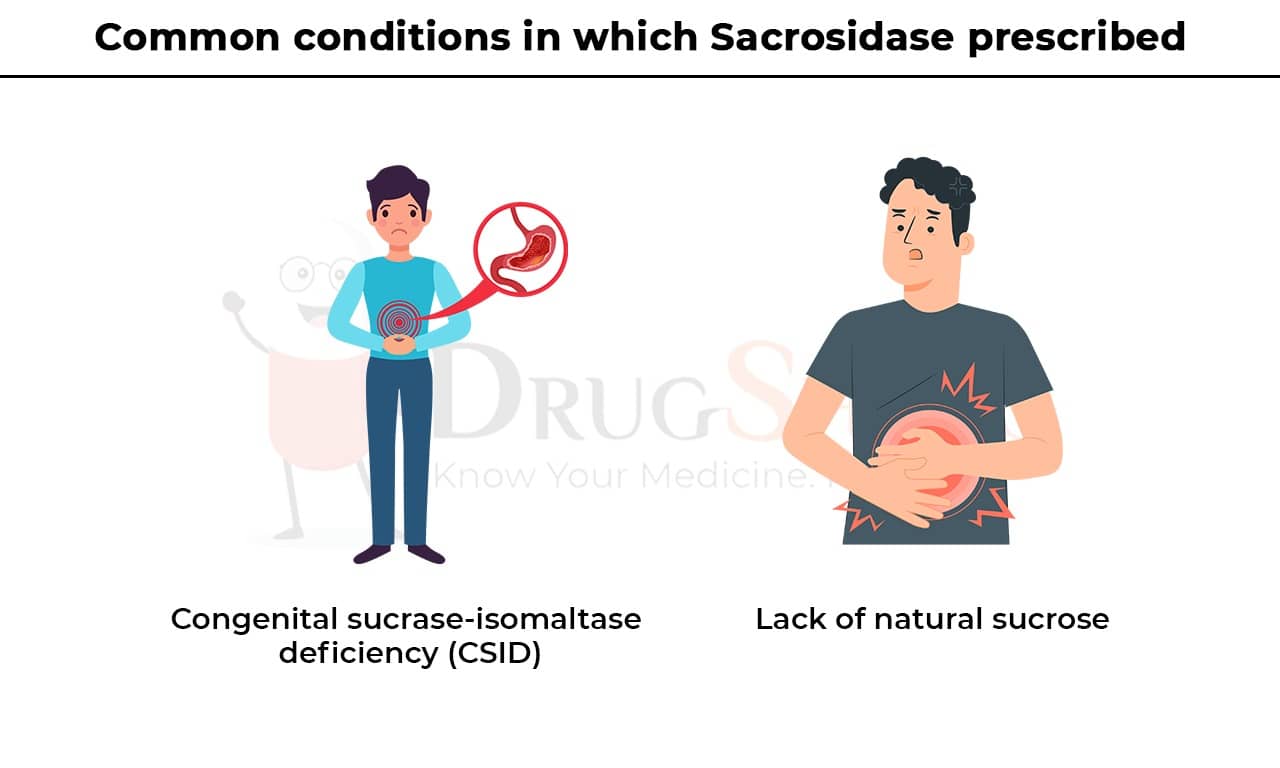
This medicine is primarily advised to treat congenital sucrase-somaltase deficiency (CSID).
How should I take Sacrosidase?
Strictly follow the instructions on the prescription label and take it in the recommended amounts and for advised duration only. This medicine can often inflict serious allergic responses. To ensure the safety of medicine, the doctor may undertake a skin test on you. Your doctor may prefer to administer the initial dose of this drug in a clinic setting to attend to any possible serious side effects that may happen timely. The medicine is typically taken with every meal or snack.
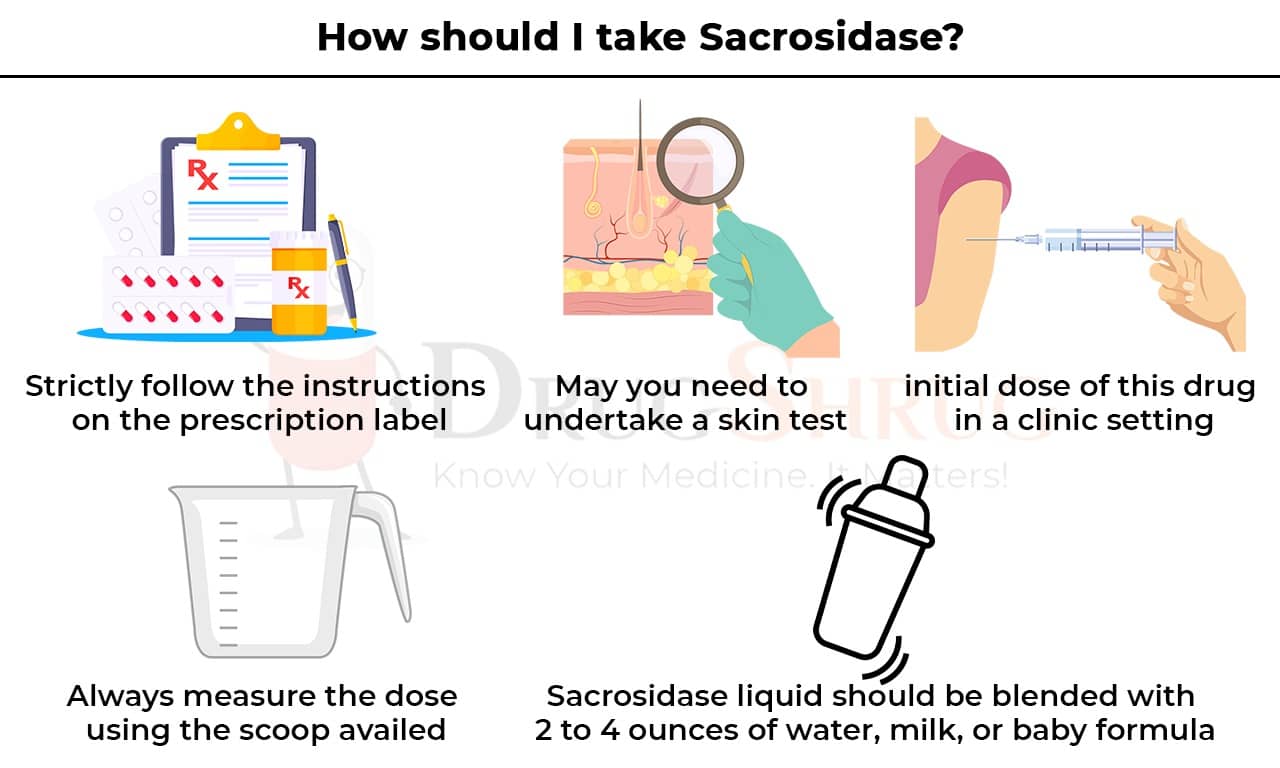
Using one half of the dosage at the start of eating and the other half after the meal or snack is preferred. Always measure the dose using the scoop availed with the medicine. Wash and dry the scoop after each dose.
Sacrosidase liquid should be blended with 2 to 4 ounces of water, milk, or baby formula that is similar to room temperature. Avoid mixing it with warm or hotter liquids, as it may tamper with the efficacy of the medicine.
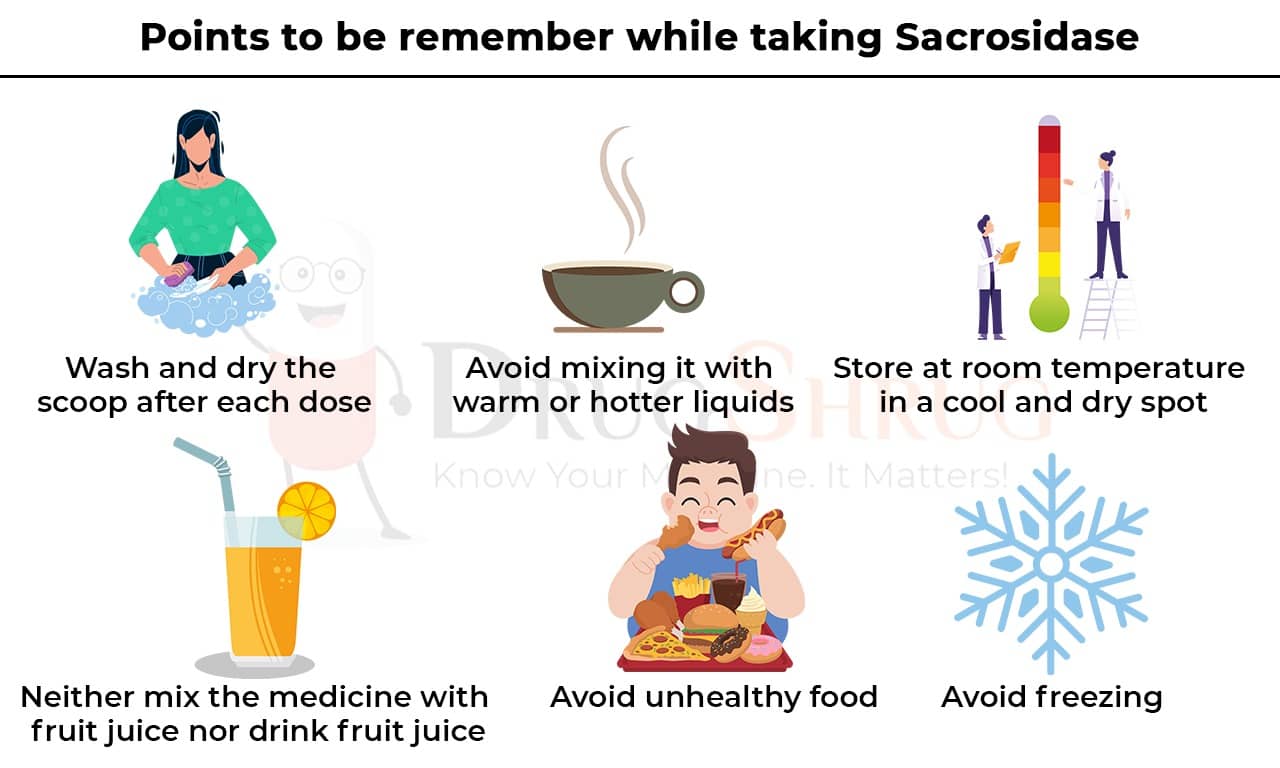
Neither mix the medicine with fruit juice nor drink fruit juice while administering the medicine. The treatment may involve this medicine as a part of the course, which also often involves a special diet. Follow the diet chart given to you by your medic or nutritionist. Notice the foods that you may have to avoid to rectify your health condition.
Store this medicine in a cool and dry spot and avoid freezing. Seal the bottle closed when not using. Record the date at the first opening of the medicine bottle on its label. Discard the unused sacroacidase after 4 weeks of opening the bottle.
Sacrosidase dosing details:
Typical Adult Dose for Sucrase-Isomaltase Deficit:
- Up to 15 kg: 1 mL (8500 international units) or 1 full measuring scoop or 28 drops orally per meal or snack
- Over 15 kg: 2 mL (17,000 international units) or 2 full measuring scoops or 56 drops orally per meal or snack
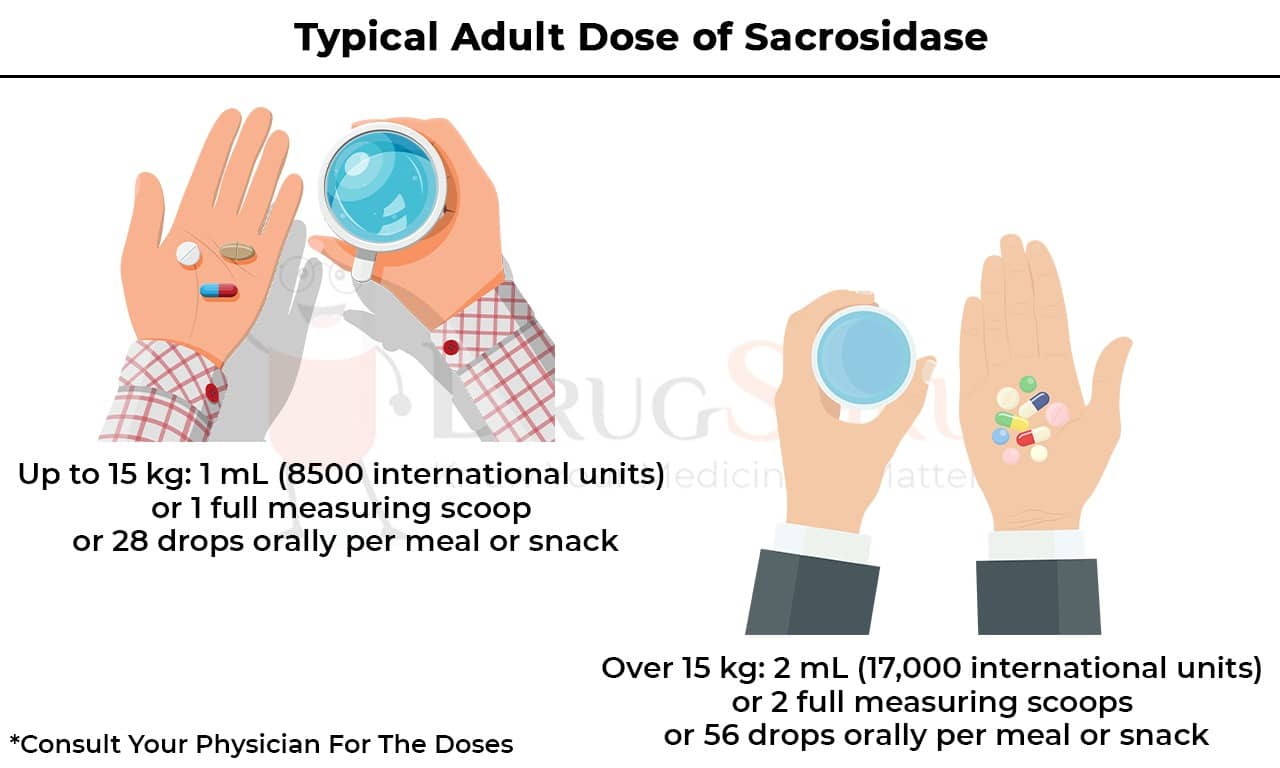
- Use: Oral replacement therapy of genetically verified sucrase deficiency in patients with congenital sucrase-isomaltase deficiency (CSID)
Usual Pediatric Dose for Sucrase-Isomaltose Deficit:
5 months and above:
- Up to 15 kg: 1 mL (8500 international units) or 1 full measuring scoop or 28 drops orally per meal or snack
- Over 15 kg: 2 mL (17,000 international units) or 2 full measuring scoops or 56 drops orally per meal or snack
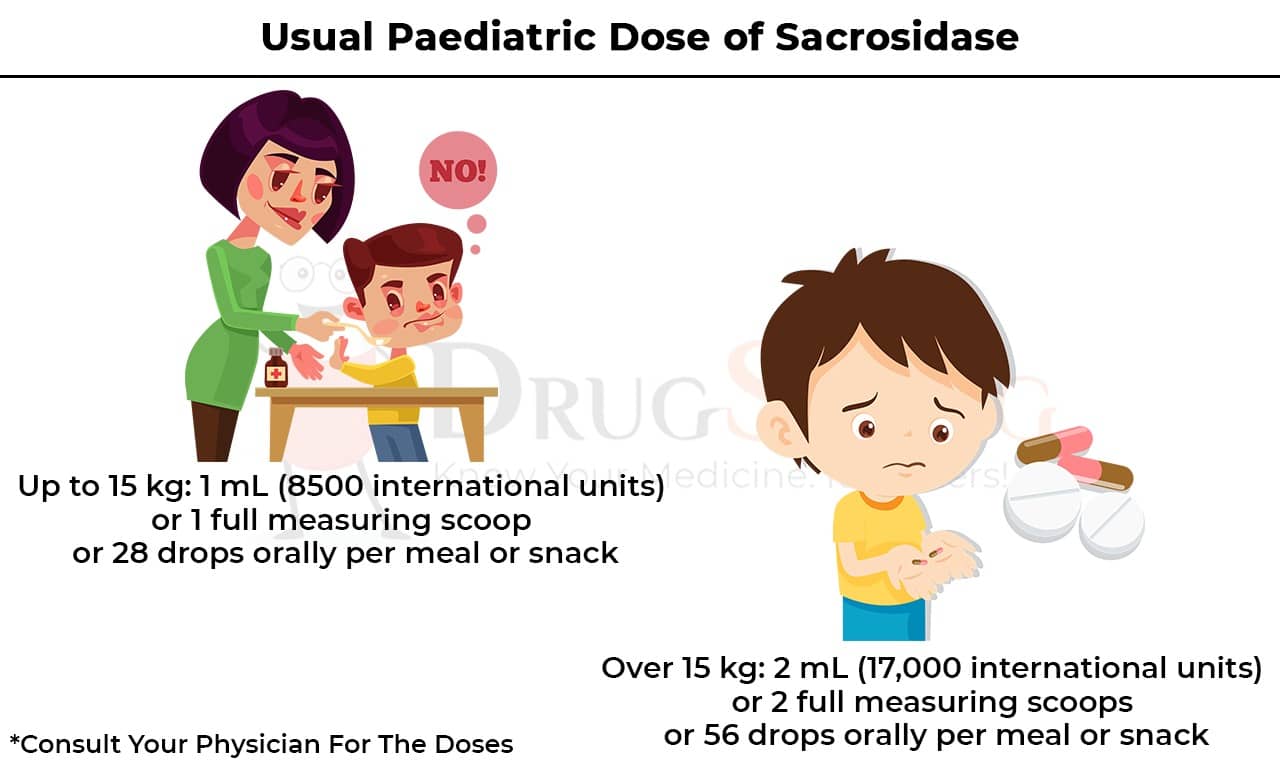
Use: Oral replacement therapy of genetically verified sucrase deficiency in patients with CSID
When you should not take Sacrosidase?
Avoid the medicine if you are hypersensitive to yeast, yeast products, glycerol (glycerine), papain (Accuzyme, Ethezyme, Gladase, Kovia and others). Inform you doctor if you are diabetic to ensure the safety of medicine for your use. This is because sacroacidase alters the process of sugar assimilation by the body, and hence glucose levels may fluctuate. Your doctor might change the doses of your medications to suit your condition while avoiding contraindications.
It is yet undiscovered if this medicine will impact the foetus. Apprize your doctor if you are pregnant or plan to become pregnant near in the future. Also tell your doctor if you are nursing a baby while using this drug.

You may need to avoid consuming a lot of starch (found mainly in rice, potatoes, corn, pasta, and bread). Adhere to your doctor’s guideline about any specific diet while you are having this medication. Do not the food or beverage which you doctor has restricted while taking this medicine.
What are the possible side effects of Sacrosidase?
If you experience symptoms of allergic response to the medication such as hives, shallow breath, inflammation in your face or throat, seek immediate medical attention.
Tell your doctor immediately if you experience:
- Aggravating stomach pain, vomiting, nausea or diarrhoea
- Feeling extremely thirsty, unable to urinate, profuse sweating, parched and dry skin

Particular side effects may be the signs of CSID problem and not undesirable consequences of this medicine.
Common side effects may consist of:
- stomach ache, slight nausea;
- mild diarrhea, bloating;
- sleep difficulties (insomnia)
- headache
- feeling jittery.

However, these all are not the only possible side- effects, as it may show in other symptoms as well. Ask your doctor for clinical guidance about the other side effects.
What to do if I miss the dose?
Try to take the medicine as soon as you can. However, if it is almost the time of your next dose, skip the missed one.
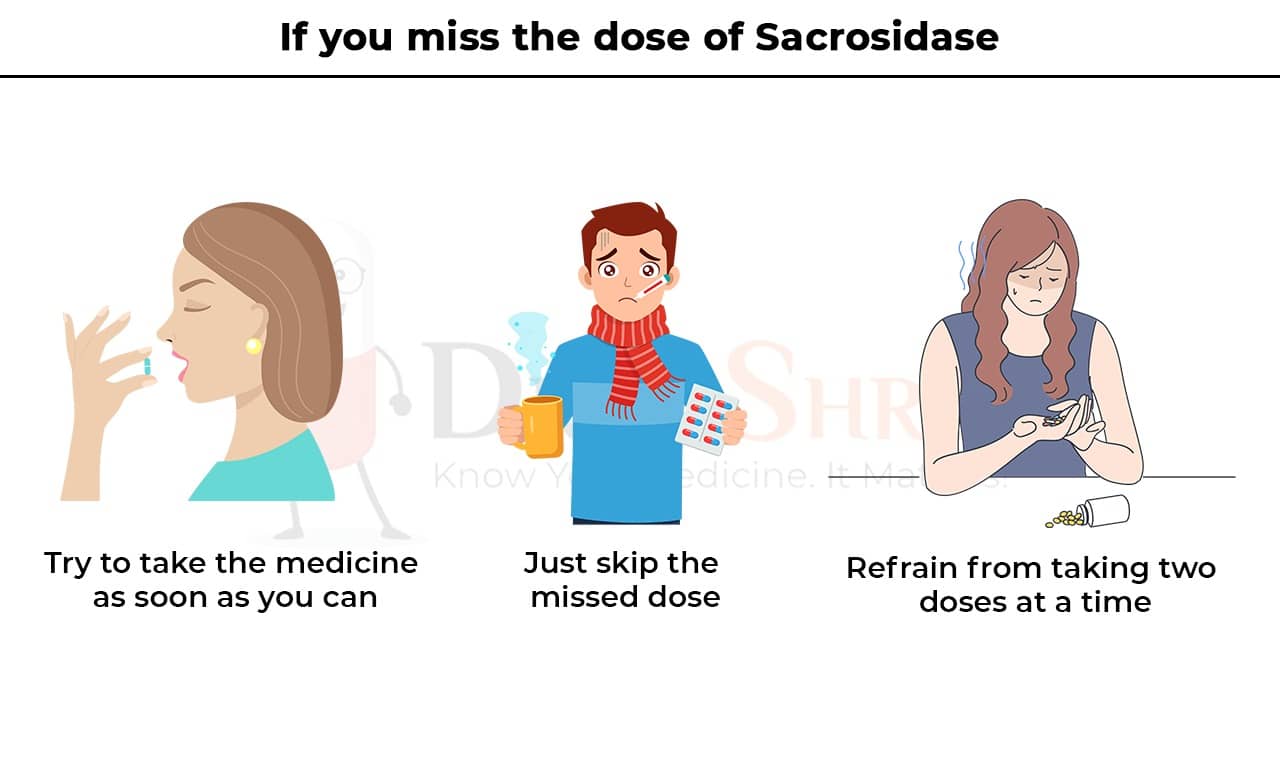
Avoid taking two doses at a time to compensate for the missed dosage.
Common Drug Interaction with Sacrosidase
Other medications may interact with this medicine, including prescription and over-the-counter drugs, vitamins, and herbal supplements.
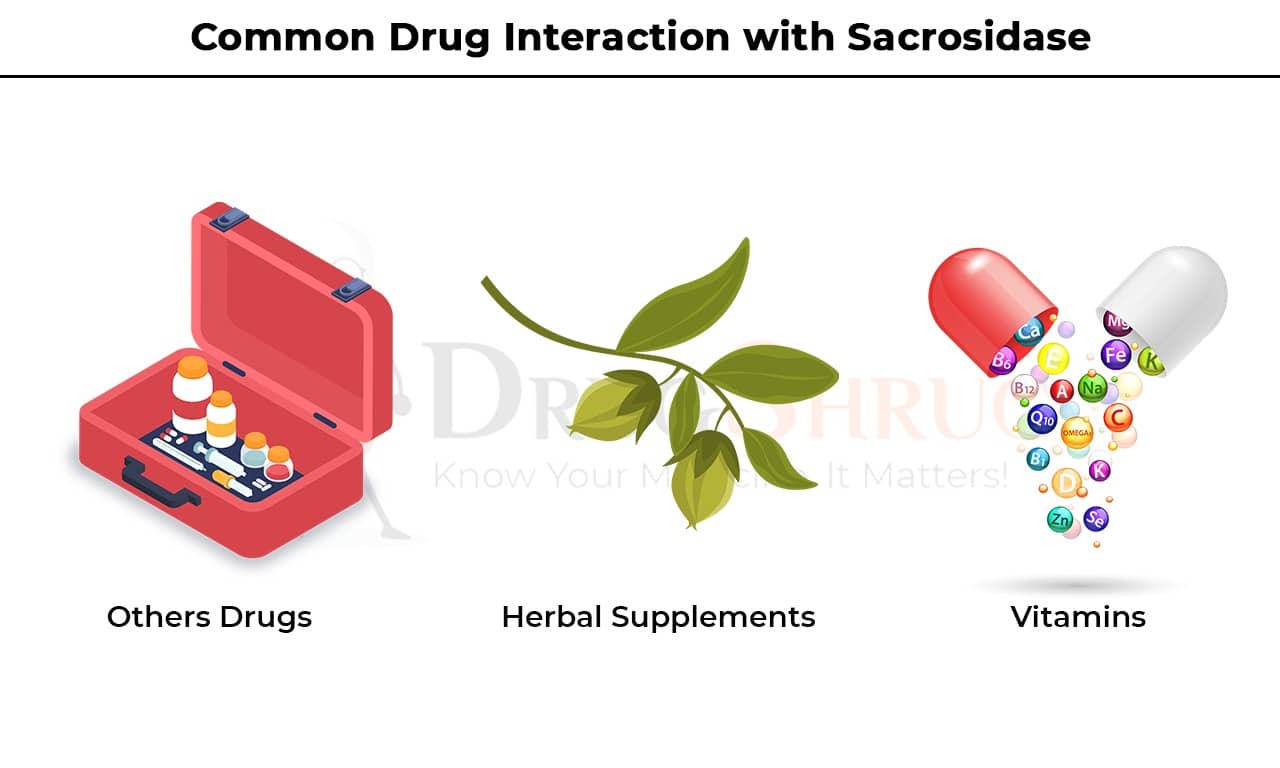
It is imperative that you disclose to your doctor regarding your current medicinal course and any medicine that you started or stopped using.
Bottom Line
Sacroacidase is an enzyme meant to replace the natural enzyme called sucrase in our body. This medicine is used to treat congenital sucrase-somaltase deficiency. Being a strict prescriptive medicine, it should not be taken without doctor’s consultation. Strictly follow all the instructions while using this drug else serious consequences may ensue.
Further Reading:
